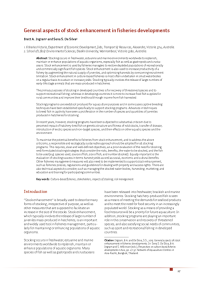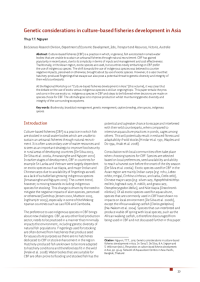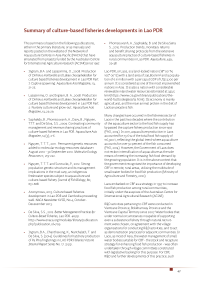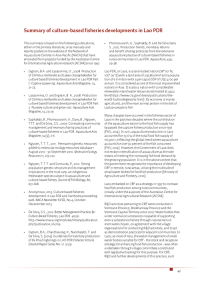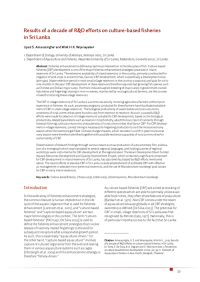In recent years, stocking programs have been subjected to substantial criticism due to perceived impact of hatchery-bred fish on genetic structure and fitness of wild stocks, transfer of disease, introduction of exotic species and non-target species, and their effects on other aquatic species and the environment. To maximise the potential benefits to fisheries from stock enhancement a responsible and ecologically sustainable approach should be adopted for all stocking programs.
A shift away from exotic speces towards the use of indigenous ones was believed to counter negative impacts of culture-based fisheries. However, hatchery-produced fingerlings can also pose a potential threat to genetic diversity and integrity of their wild counterparts. This paper entails the pros and cons in the use exotic vs. indigenous species in CBF and steps to be followed when decisions are made on species choice for CBF.
A summary of culture-based fisheries developments in Lao PDR based on publications, either in the primary literature, or as manuals and reports posted on the website of the Network of Aquaculture Centres in Asia-Pacific, that have originated from projects funded by the Australian Centre for International Agriculture research (ACIAR) since 1997.
The application of culture-based fisheries in Cambodian waters commenced with a project in sixteen small reservoirs located in four provinces. Initial consultations with the village communities responsible for the water regime management were held and their agreement obtained for monitoring and cooperating through the trial period. One common feature in all the reservoirs selected is the provision of a “conservation zone”, generally in the deeper areas of the water body, where fishing is prohibited.
Culture-based fisheries in village reservoirs of Sri Lanka is a communal activity involving agricultural farmers without prior experience in fisheries. Awareness programs have facilitated establishment of CBF in small village reservoirs. Dissemination of research findings through means such as production of a documentary film, publication of a monograph which was translated to several regional languages, and holding a series of regional workshops were instrumental for CBF development at the regional level.
